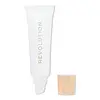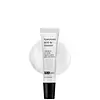What's inside
What's inside
 Key Ingredients
Key Ingredients

 Benefits
Benefits

 Concerns
Concerns

 Ingredients Side-by-side
Ingredients Side-by-side

Hydrogenated Polyisobutene
EmollientPolyisobutene
Diisostearyl Malate
EmollientBis-Behenyl/Isostearyl/Phytosteryl Dimer Dilinoleyl Dimer Dilinoleate
EmollientHydrogenated Styrene/Isoprene Copolymer
Cera Microcristallina
Emulsion StabilisingEthylene/Propylene/Styrene Copolymer
Aroma
Synthetic Fluorphlogopite
Pentaerythrityl Tetra-Di-T-Butyl Hydroxyhydrocinnamate
AntioxidantPrunus Avium Seed Oil
EmollientTocopheryl Acetate
AntioxidantPersea Gratissima Oil
Skin ConditioningSqualane
EmollientHelianthus Annuus Seed Oil
EmollientEthylhexyl Palmitate
EmollientButylene/Ethylene/Styrene Copolymer
Tribehenin
EmollientTocopherol
AntioxidantSorbitan Isostearate
EmulsifyingTin Oxide
AbrasiveLactic Acid
BufferingAnthemis Nobilis Flower Extract
MaskingPalmitoyl Tripeptide-1
Skin ConditioningCitral
PerfumingLinalool
PerfumingLimonene
PerfumingCI 77891
Cosmetic ColorantHydrogenated Polyisobutene, Polyisobutene, Diisostearyl Malate, Bis-Behenyl/Isostearyl/Phytosteryl Dimer Dilinoleyl Dimer Dilinoleate, Hydrogenated Styrene/Isoprene Copolymer, Cera Microcristallina, Ethylene/Propylene/Styrene Copolymer, Aroma, Synthetic Fluorphlogopite, Pentaerythrityl Tetra-Di-T-Butyl Hydroxyhydrocinnamate, Prunus Avium Seed Oil, Tocopheryl Acetate, Persea Gratissima Oil, Squalane, Helianthus Annuus Seed Oil, Ethylhexyl Palmitate, Butylene/Ethylene/Styrene Copolymer, Tribehenin, Tocopherol, Sorbitan Isostearate, Tin Oxide, Lactic Acid, Anthemis Nobilis Flower Extract, Palmitoyl Tripeptide-1, Citral, Linalool, Limonene, CI 77891
Petrolatum
EmollientHydrogenated Polyisobutene
EmollientEthylene/Propylene/Styrene Copolymer
Beeswax
Emulsion StabilisingEthylhexyl Palmitate
EmollientCetearyl Ethylhexanoate
EmollientTocopherol
AntioxidantTribehenin
EmollientAroma
Ricinus Communis Seed Oil
MaskingSorbitan Isostearate
EmulsifyingSodium Saccharin
MaskingPortulaca Pilosa Extract
Skin ConditioningButylene/Ethylene/Styrene Copolymer
BHT
AntioxidantTrihydroxystearin
Skin ConditioningSucrose Cocoate
EmulsifyingSodium Hyaluronate
HumectantPalmitoyl Tripeptide-1
Skin ConditioningPalmitoyl Tripeptide-38
Skin ConditioningAmorphophallus Konjac Root Powder
AbrasivePetrolatum, Hydrogenated Polyisobutene, Ethylene/Propylene/Styrene Copolymer, Beeswax, Ethylhexyl Palmitate, Cetearyl Ethylhexanoate, Tocopherol, Tribehenin, Aroma, Ricinus Communis Seed Oil, Sorbitan Isostearate, Sodium Saccharin, Portulaca Pilosa Extract, Butylene/Ethylene/Styrene Copolymer, BHT, Trihydroxystearin, Sucrose Cocoate, Sodium Hyaluronate, Palmitoyl Tripeptide-1, Palmitoyl Tripeptide-38, Amorphophallus Konjac Root Powder
Ingredients Explained
These ingredients are found in both products.
Ingredients higher up in an ingredient list are typically present in a larger amount.
Aroma refers to an ingredient, or mixture of ingredients, that impart or mask a flavor.
The name is slightly confusing. This is because INCI associates aroma with flavor instead of smell.
Here is the official definition from the The International Cosmetic Ingredient Dictionary and Handbook:
“Aroma is a term for ingredient labeling used to identify that a product contains a material or combination of materials normally added to a cosmetic to produce or to mask a particular flavor.”
INCI shows the only purpose of aroma to be "flavouring".
However, due to regulation differences, some companies may use aroma in place of parfum.
In Canada, this ingredient only has to be listed in concentrations above 1%.
Learn more about AromaWe don't have a description for Butylene/Ethylene/Styrene Copolymer yet.
We don't have a description for Ethylene/Propylene/Styrene Copolymer yet.
Ethylhexyl Palmitate, also known as octyl palmitate, is created from 2-ethylhexyl alcohol and palmitic acid. It is a fatty acid ester.
The fatty acid content of Ethylhexyl Palmitate makes it an emollient. Emollients help soften and hydrate your skin by trapping moisture within.
Ethylhexyl Palmitate is also used to help improve the texture of cosmetics. It helps other ingredient dissolve in products and help disperse ingredients more evenly.
You'll likely find this ingredient in sunscreen, as it is often used to mix UV-blocking ingredients such as avobenzone and ethylhexyl triazone.
It can also help stabilize the fragrances in a product as a fragrance fixative.
Ethylhexyl Palmitate can be used to substitute mineral oil.
Due to its high fatty acid content, it may not be fungal-acne safe.
Learn more about Ethylhexyl PalmitateHydrogenated Polyisobutene is a synthetic polymer. Polymers are compounds with high molecular weight. Hydrogenated Polyisobutene is an emollient and texture enhancer.
In one study, Hydrogenated Polyisobutene showed better skin hydration levels than Caprylic/Capric Triglyceride. As an emollient, it helps keep your skin soft and hydrated by trapping moisture in.
Hydrogenated Polyisobutene is often used as a mineral oil replacement.
Learn more about Hydrogenated PolyisobutenePalmitoyl Tripeptide-1 is also known as pal-GHK. It is made up of 3 amino acids and palmitic acid, a fatty acid that helps it absorb into skin more easily.
This peptide is as a signal peptide, meaning it tells the skin to produce more collagen. Collagen is the key protein that helps form the skin's structure and keep it plump, firm, and hydrated.
By boosting collagen production, this ingredient supports a stronger skin barrier and helps reduce the appearance of wrinkles.
You'll most likely see this ingredient paired with Palmitoyl Tetrapeptide-7 in the well-known Matrixyl 3000 complex. While results from in-house testing should be viewed cautiously, this peptide duo is among the most studied and widely used in modern skincare.
Due to its palmitic acid base, this ingredient may not be safe for Malassezia folliculitis.
Read more about other common types of peptides here:
Learn more about Palmitoyl Tripeptide-1Sorbitan Isostearate is an emulsifer and cleaning agent. It is created from isostearic acid and sorbitol.
As an emulsifier, Sorbitan Isostearate prevents oils and water from separating.
Due to its isostearic acid base, it may not be safe for Malassezia or fungal acne.
Learn more about Sorbitan IsostearateTocopherol (also known as Vitamin E) is a common antioxidant used to help protect the skin from free-radicals and strengthen the skin barrier. It's also fat soluble - this means our skin is great at absorbing it.
Vitamin E also helps keep your natural skin lipids healthy. Your lipid skin barrier naturally consists of lipids, ceramides, and fatty acids. Vitamin E offers extra protection for your skin’s lipid barrier, keeping your skin healthy and nourished.
Another benefit is a bit of UV protection. Vitamin E helps reduce the damage caused by UVB rays. (It should not replace your sunscreen). Combining it with Vitamin C can decrease sunburned cells and hyperpigmentation after UV exposure.
You might have noticed Vitamin E + C often paired together. This is because it is great at stabilizing Vitamin C. Using the two together helps increase the effectiveness of both ingredients.
There are often claims that Vitamin E can reduce/prevent scarring, but these claims haven't been confirmed by scientific research.
Learn more about TocopherolTribehenin comes from glycerin and behenic acid.
It is used as an emollient, or moisturizer. Emollients form a thin barrier on skin to prevent moisture from escaping.
This ingredient may not be Malassezia folliculitis, or fungal-acne safe.
Learn more about Tribehenin